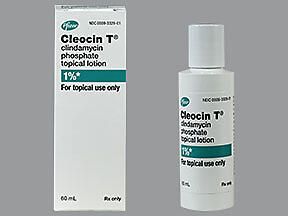

Cleocin, also known as clindamycin, is a potent antibiotic widely prescribed for the treatment of various bacterial infections. It belongs to the class of antibiotics called lincosamides, which work by inhibiting bacterial protein synthesis, thereby effectively stopping the growth and spread of harmful bacteria in the body. Cleocin is particularly effective against anaerobic bacteria, which thrive in low-oxygen environments and are commonly implicated in infections such as skin and soft tissue infections, bone and joint infections, and intra-abdominal infections.
One of the key advantages of Cleocin tablets is their versatility in treating a wide range of bacterial infections, making them a valuable tool for healthcare providers. Additionally, Cleocin is available in multiple formulations, including oral tablets, capsules, and intravenous solutions, providing flexibility in administration based on the severity and location of the infection. Despite its efficacy, Cleocin should be used judiciously and only as prescribed by a healthcare professional to minimize the risk of antibiotic resistance and potential adverse effects. Overall, Cleocin tablets stand as a trusted option in the arsenal against bacterial infections, offering reliable relief and promoting better health outcomes for patients.

